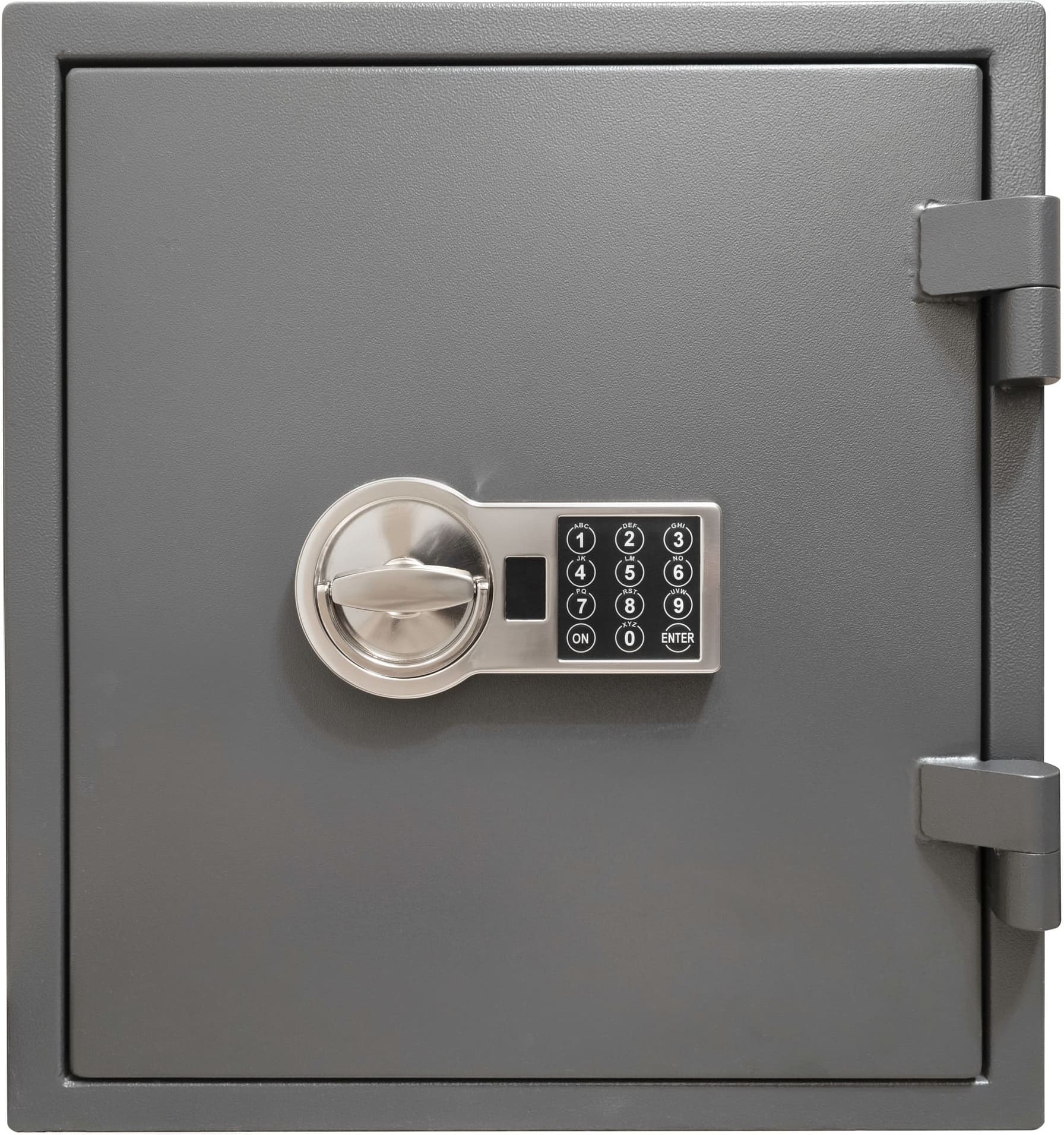Safe deposit boxes during bankruptcy proceedings
Additional information > Prevailing conditions for value storage in Switzerland and Liechtenstein > Encyclopedia: Bank failure& your safe deposit box
Is your safe deposit box and its contents part of the bankruptcy estate?
Let’s reveal the good news right away: No, a safe deposit box and its contents are not regarded as part of a bank’s own bankruptcy estate. So normally, such stored content may not be used by bankruptcy executors to settle outstanding debts. However, if a customer has outstanding personal debts to the bank, in certain circumstances, the bankruptcy administrator can have their safe deposit boxes opened in the presence of the customer and a notary and have the contents sold off. The proceeds can then be used to pay back the customer’s bank debts, such as an outstanding mortgage.

Péter Mács © - stock.adobe.com
But even when a customer is not in arrears with the bank, bankruptcy can still have unpleasant consequences. For example, bankruptcy executors consider a bank’s safe deposit box facility to be a low priority issue. So it sometimes takes months, or even years, to finally process a bankruptcy settlement and allow bank safe deposit customers to once again access their safe deposit boxes in order to retrieve the contents.
What are the deposit protection limits?
If a Swiss bank has to file for bankruptcy, then credit balances of up to CHF 100,000 per customer are automatically protected. Since the beginning of 2023, a community of heirs, or a married couple, are now treated as separate “customers”. This means, for example, that each spouse can have their own individual account relationship, with each secured up to CHF 100,000. And, in addition, the joint account is also treated as another separate entity. All three accounts are therefore secured up to a total maximum of CHF 300,000. Another new feature is that any credit balances must be paid out within just a few weeks. For deposit protection purposes, it is irrelevant whether the customers are Swiss citizens or foreign nationals.
This deposit guarantee applies to all banks and securities firms with branches inside the Swiss Confederation. Customers of institutions with special cantonal-bank status are even better protected against bankruptcy, because here, the canton responsible will also protect assets over CHF 100,000. The only exceptions are cantonal banks in Vaud, Bern and Geneva, which do not offer this full state depositor protection guarantee.
Are all balances and investments protected?
Credit balances in the customer’s name on private-, savings- and payroll accounts are secured, as are medium-term bonds, plus term- and fixed-term deposit accounts. However, cryptocurrencies and WIR funds are not covered by a deposit guarantee.
You should also be careful with money in vested benefits and pillar 3a (pension/retirement) accounts, which are also not covered by any deposit guarantee. So if the bank in question goes bankrupt, these deposits will either not be paid out at all, or only refunded after a liquidation process that can take years. However, under Swiss bankruptcy law, these funds have privileged status up to CHF 100,000 in insolvency cases.
Shares and bonds held in a customer custody account at the insolvent bank are also not covered by the deposit guarantee. However, because the bank only holds such securities under a custody arrangement – they do not belong to the bank, and in the event of a bankruptcy would usually go to the customer – subject to a right of lien or set-off by the bank specified in the customer contract. In most cases, securities and bonds are thus protected and cannot be accessed by an insolvent bank.
In order to prevent your financial assets from being lost in the event of bankruptcy, you should invest your money in banks with a state deposit guarantee (i.e. a cantonal bank – see above). Alternatively, you could spread your funds across several banks, because the CHF 100,000 deposit guarantee will apply to each one.
An alternative to a bank safe deposit box
Bank customers who wish to arrange safe storage of precious metal holdings, artworks, cash or important documents will find there is a practical alternative that involves lower risks in the event of insolvency proceedings.
For example, a bank-independent safe deposit box in Switzerland offers maximum security with a very low risk of bankruptcy.
In the extremely unlikely event of a bankruptcy occurring at Swiss Gold Safe, the procedure will be implemented much faster than at a bank. This is essentially because a bank’s business activities are invariably far more diverse and complex than those of a specialist storage provider such as Swiss Gold Safe. Furthermore, you can rent a safe deposit box from Swiss Gold Safe without any obligation to open an additional account or buy other products – as is often the precondition with a bank. This also means you do not have to commit to any convoluted involvements like those which can exist between a customer and their bank.
For Swiss Gold Safe clients, this means they can access their safe deposit box much faster and thus retrieve their valuables. Furthermore, because Swiss Gold Safe does not offer any financial loans, all that bankruptcy executors can demand from Swiss Gold Safe’s clients is any outstanding invoices for safe deposit rentals or insurance premiums. As a result, clients will still have free, unfettered access to their safe deposit boxes, without the kind of procedural barriers and delays typically encountered in the course of a banking insolvency event. In addition, neither the individual safe deposit facility itself, nor its contents, are linked to the Swiss Gold Safe bankruptcy estate, making this an excellent alternative to a bank safe deposit box.
Of course, these same comments apply equally to bank-independent safe deposit boxes in Liechtenstein.

Andrey Kuzmin © - stock.adobe.com
How can I arrange to rent a safe deposit box without a bank?
At this point you are probably wondering: How is it possible to rent a safe deposit box without a bank? This is not at all complicated, and actually much easier than you may think. You don’t even have to open your own personal account, which is usually a precondition for accessing bank safe deposit box facilities. With a professional specialist provider like Swiss Gold Safe, you simply choose the right safe deposit box size for your valuables, pay the safe deposit rental, and store your precious metals, jewellery, artworks and certain cryptocurrencies in your own secure space. Swiss Gold Safe automatically includes basic insurance cover, and if it proves necessary to arrange a higher sum insured, there are further options available to provide the optimal level of cover.
On request, Swiss Gold Safe can also organise the transport of your valuables to our storage facilities.
Maximum discretion
Storage in a safe deposit box outside the banking system offers another advantage which many clients from the EU and Switzerland will much appreciate: Absolute discretion vis-à-vis the authorities.
Many European countries now gather and store bank customer data, and allow government agencies to access this information through linked account retrieval procedures. This typically includes not only bank account data, but also information about safe deposit boxes – a practice which sometimes involves such data recorded in what may be called ‘safe deposit registers’.
Things to consider carefully when choosing a safe deposit box
Taking certain criteria into account when choosing safe deposit facilities is all important.
At Swiss Gold Safe, we have a broad range of safe deposit boxes in different sizes (all with optimal insurance cover) to cater for every need.
All the keys for each safe deposit box are handed over to the client. And, subject to prior notification, our convenient on-call team can give clients almost round the clock access to their safe deposits.
Thanks to their independence, economic and political stability, and strong traditions of upholding individual property rights, Switzerland and the Principality of Liechtenstein are ideal locations for storing precious metals and other assets. Safe deposit rentals can be settled via various convenient options: bank transfer, cryptocurrency, or cash payments in various currencies.
Learn more about safe deposit box security and privacy here.
Overview: Bankruptcy & your safe deposit box
- In the event of banking insolvency procedures, a safe deposit box and its contents do not form part of a bank’s bankruptcy estate.
- However, if a customer is in debt to the bank, the contents of their safe deposit box may be handed over to the bankruptcy executors and sold to settle the outstanding debt.
- With Swiss Gold Safe facilities, the contents of a safe deposit box always remain the property of the client and cannot be sold for any recovery purposes.
- When bank insolvency procedures ensue, customer access to safe deposit boxes can be severely restricted for a considerable period of time.
- Bank-independent safe deposit boxes offer the highest levels of security and maximum discretion for clients from Switzerland and abroad.

